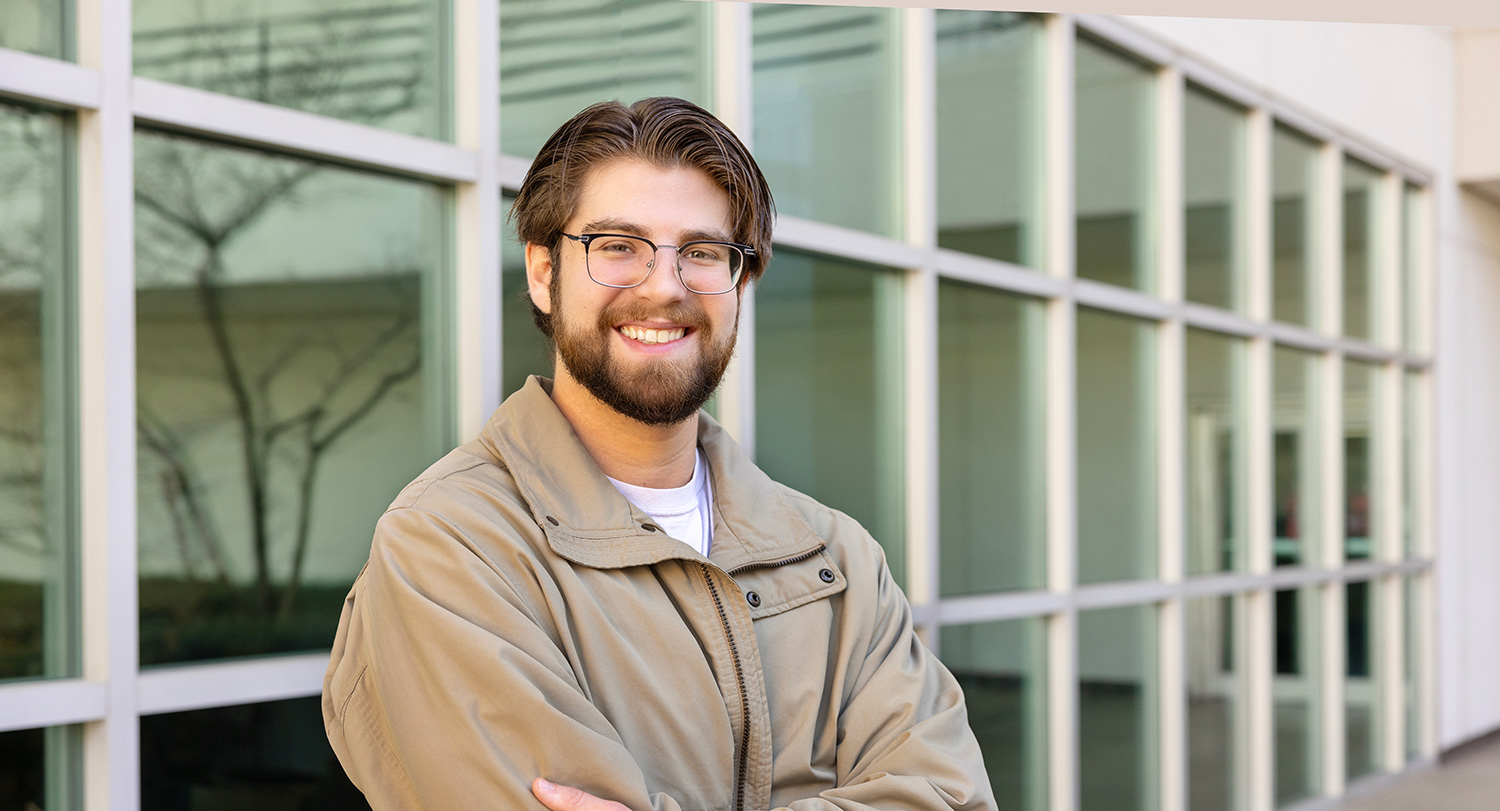
As a child, Alex Alpert spent a lot of time playing with Legos and deconstructing household appliances to understand how they work. But it wasn’t until he started taking classes at the University of South Carolina that the fourth-year mechanical engineering student and member of the Honors College knew pursuing the field was the right path for him.
“The draw of mechanical engineering for me is that you get to create practical solutions to real world problems,” says Alpert, a native of Greer, South Carolina. “And you end up with something tangible in the end. In addition, you can do stuff on smaller scales. A lot of other engineering majors or industries, you can’t really do that. For example, chemical engineering, you’re not setting up a miniature chemical plant in your living room. I have a 3D printer, and I can mock up stuff whenever I want. I love the immediate ability to mock up and realize an idea.”
That love of engineering led Alpert to join Hands-On Prosthetic Engineering, an on-campus nonprofit organization that provides prosthetics to those in need at no cost.
“The first year, we really struggled just to find projects,” he says. “It was basically just an exec board at the time. We had new members, but we were inexperienced. The first project we had was a 3D-printed wheelchair for a cat, but we only created one prototype before moving on to another project.”
Alpert says the group is still working out its process for taking on projects. Basically, he says, they choose projects that are brought to their attention and that they think they can find a solution for. The group’s most recent project is an orthosis — a corrective device for arthritis or bone issues — for a member’s mother who has ulnar arthritis, which has reduced motion of her hand and forced her fingers to painfully bend in one direction.
For this project, their goal is to produce a device similar to one already on the market but that will be more comfortable and free to the patient. “A lot of these products are either cheap and don’t work well or they’re very expensive,” he says. “So, we’re developing a middle ground that is cheap and also better than what she has now.”
I have a 3D printer, and I can mockup stuff whenever I want. I love the immediate ability to mockup and realize an idea.
In addition to building prosthetics with Hands-On Prosthetic Engineering, Alpert has also worked on creating a self-watering smart herb garden for his senior design project for Capgemini, an IT services and consulting company. He says working on a project with multiple people who have differing opinions and skill sets was a great opportunity for growth.
“It could be stressful at times,” he says. Alpert and his team finished the project, but it did not work as well as they had hoped. Once the course was over, he decided to fix some small issues the project had. Still, he says, it was a great learning experience.
“I learned a lot about myself as an engineer and a leader,” he says.
Alpert says being at USC has prepared him for his future career because it has helped him improve his ability to assess and solve problems, helped him become better at organizing and made him a more well-rounded engineer.
“I basically touched every aspect that I could possibly be working on,” he says, mentioning math, coding, computer-assisted design and electrical engineering as some of the areas he has explored inside and outside the classroom.
Although he enjoys all aspects of engineering, he hopes to work in research and development — preferably in the field of renewable energy.
“It’s really important to me that we move to a sustainable future,” Alpert says. “I could live a happy life knowing that I’m working on that.”